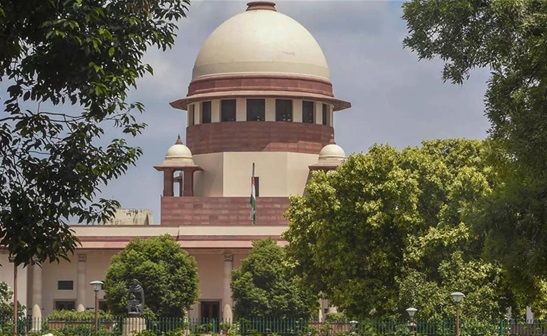Prelims: (Polity + CA)
Mains: (GS 2 – Governance, Constitution) |
Why in the News?
The Supreme Court has delivered a major advisory opinion under Article 143 in response to a Presidential reference. The reference was triggered after the Supreme Court’s April 2025 judgment in State of Tamil Nadu vs. Governor of Tamil Nadu, which dealt with delays in granting assent to State Bills. The advisory clarifies the scope of the Governor’s powers, justiciability of delays, and limits on judicial timelines regarding assent procedures.

Background to the Presidential Reference
The reference stemmed from controversies created by the Supreme Court’s April 2025 ruling, which:
- Mandated a three-month timeline for Governors/President to act on Bills,
- Declared such delays judicially reviewable,
- Used Article 142 to grant “deemed assent” to several pending Tamil Nadu Bills.
This created constitutional uncertainty and raised three major questions:
- Can courts impose timelines for assent?
- Can Presidential/Governor inaction be judicially reviewed?
- Can Article 142 override constitutional procedures?
The Union Government therefore invoked Article 143 seeking clarity.
Scope of Questions Before the Constitution Bench
The Presidential reference placed 14 constitutional questions before the Supreme Court, dealing with:
- Interpretation of Articles 200 and 201 (assent procedures),
- Whether courts can intervene before a Bill becomes law,
- Extent of judicial review over Governor/President’s delays,
- Boundaries of Article 142 powers.
These issues are fundamental to India’s federal structure, legislative functioning, and Centre–State relations.
Key Takeaways From the Supreme Court’s Advisory Opinion
The five-judge Bench provided a comprehensive clarification of the constitutional design regarding State Bills.
1. Governor’s Options Under Article 200
The Court reaffirmed that a Governor has three constitutionally recognised choices:
- Assent to the Bill,
- Reserve the Bill for Presidential consideration,
- Withhold assent and return the Bill with observations (except Money Bills).
No other options — including judicially created ones like “deemed assent” — are permissible.
2. Discretion of the Governor
- The Court held that the Governor does have discretion in matters of assent.
- The Governor is not bound by the advice of the Council of Ministers in choosing among the three options.
This marks a major departure from the logic of earlier landmark rulings such as:
- Shamsher Singh (1974)
- Nabam Rebia (2016)
which stressed the primacy of ministerial advice.
3. Limited Justiciability
- Governor’s actions under Article 200 are generally not subject to judicial review.
- However, the Court added a narrow exception:
- In cases of “prolonged, unexplained inaction”, courts may issue a limited mandamus directing the Governor to act, but cannot dictate the outcome.
This preserves judicial oversight without intruding into executive discretion.
4. No Judicial Timelines
The Court set aside the April 2025 ruling that prescribed a three-month limit.
- If the Constitution is silent, courts cannot invent timelines.
- The judiciary cannot create procedural rules that substitute the constitutional design.
5. No Use of Article 142 to Create ‘Deemed Assent’
- The Court rejected the idea of “deemed assent” created by judicial order.
- Assent is a constitutional executive function that cannot be performed by the judiciary.
This marks a clear boundary on Article 142.
Issues Arising from the Opinion
1. Legislative Intent May Be Undermined
- The judgment expands Governor’s discretion, potentially enabling obstruction of State legislative agendas.
- This contradicts:
- Sarkaria Commission (1987) — recommended reserving Bills only in rare cases.
- Earlier Supreme Court precedents requiring Governors to follow ministerial advice.
2. Absence of Timelines Can Enable Delays
- The Punchhi Commission (2010) recommended a six-month limit.
- Courts previously used purposive interpretation to create timelines in other contexts (e.g., K.M. Singh on Speakers’ disqualification decisions).
- Critics argue that timelines are essential to prevent constitutional paralysis.
3. Federal Concerns
- Over-expansion of the Governor’s discretion risks upsetting the balance of power between elected State governments and the Union.
Significance of the Advisory Opinion
Clarifies Constitutional Boundaries
- Provides long-awaited clarity on Articles 200 and 201.
Defines the Limits of Judicial Intervention
- Strengthens separation of powers.
Reconfigures Centre–State Dynamics
- Expands the Governor’s functional autonomy, impacting federal relations.
Rejects Judicial Overreach
- Reinforces that courts cannot assume executive functions.
Guides Future Constitutional Practice
- Sets a precedent for how delays and assent procedures should be handled.
Challenges Ahead
- Risk of political misuse of gubernatorial powers.
- Increased potential for legislative deadlock in politically sensitive States.
- Ambiguity remains regarding what constitutes “unexplained delay.”
- Greater friction between State governments and Governors may arise.
Way Forward
- Governors must exercise discretion with constitutional morality and responsible urgency.
- The Union Government must ensure that the Governor’s office is not used to impede elected State governments.
- Judicial oversight should remain a safety valve, preventing constitutional breakdown without intruding into executive authority.
- Parliament may consider codifying timelines for assent to maintain democratic functioning.
FAQs
1. What triggered the Presidential reference under Article 143?
A 2025 Supreme Court judgment that introduced timelines and “deemed assent,” creating constitutional uncertainties.
2. What powers does the Governor have under Article 200?
Three: assent, reserve for the President, or return the Bill.
3. Can courts impose timelines for assent?
No. The Court clarified that judiciary cannot create timelines where the Constitution is silent.
4. Can courts review delays by the Governor?
Only in rare cases of prolonged, unexplained inaction, and even then only to direct the Governor to act, not decide.
5. Can Article 142 be used to grant “deemed assent”?
No. Assent is an executive function and cannot be substituted by a judicial decree.
|



